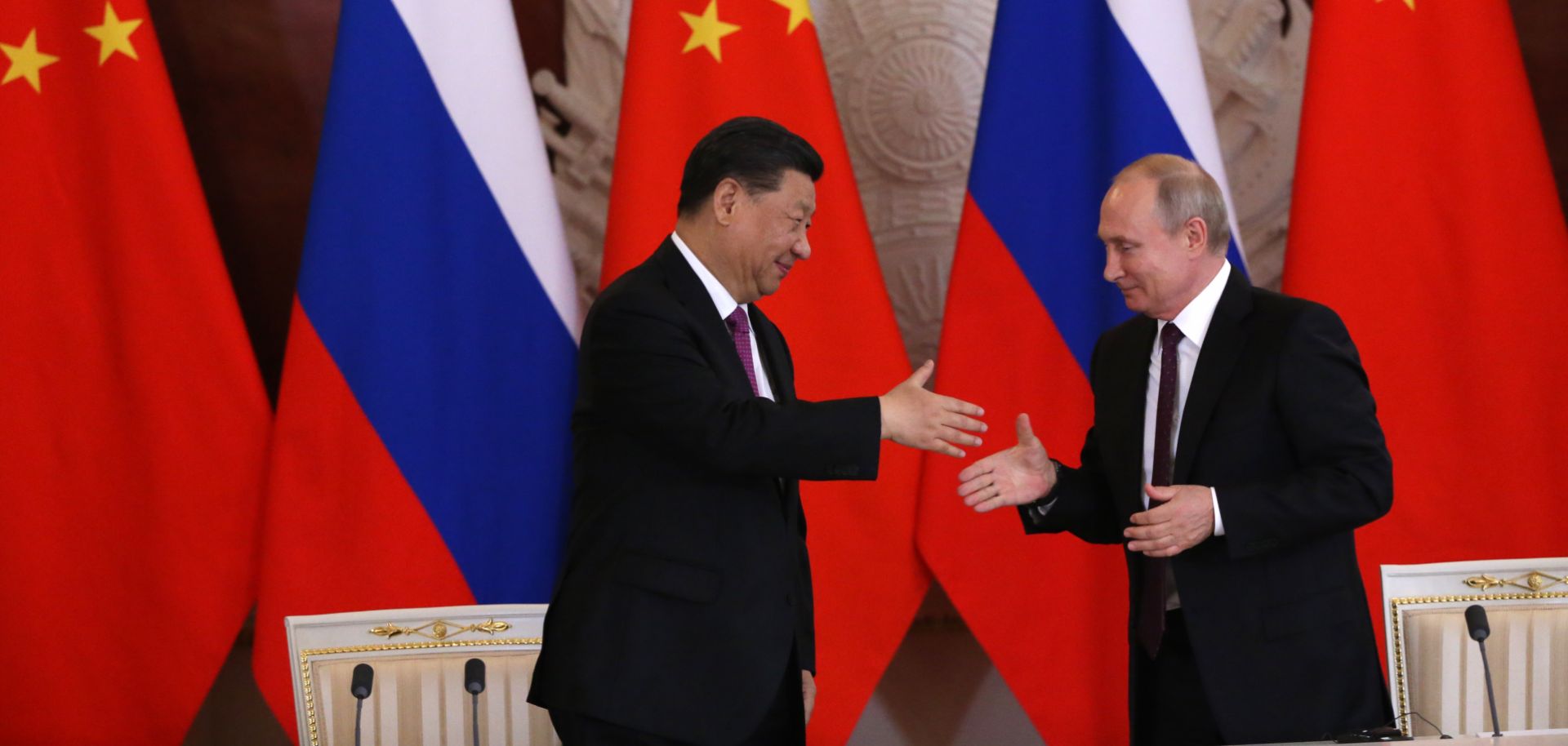COLUMNS
The Ever-Shifting 'Strategic Triangle' Between Russia, China and the U.S.

Jun 7, 2019 | 05:30 GMT

Chinese President Xi Jinping and Russian President Vladimir Putin meet in the Kremlin in Moscow on June 5. Russia and China are strengthening their bilateral ties, but their cooperation will prove to have significant limits.
(MIKHAIL SVETLOV/Getty Images)
Highlights
- Russia and China are on a trajectory to increase ties across the economic, energy and security realms, but this path is by no means set.
- The evolving relationship between Russia and China will inherently be shaped by each country's links to — and contention with — the United States as part of a "strategic triangle" of relations.
- As China rises in terms of its relative economic and military power, Russia and the United States could eventually seek a strategic rapprochement to constrain Beijing's ascension.
- However, any alignment between the United States and Russia would be limited to specific shared interests and could ultimately shift again with prevailing geopolitical conditions.
Proceed to sign up
Register NowAlready have an account?
Sign In